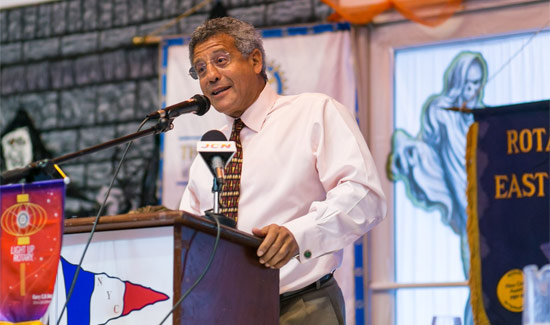The Judiciary will host the 10th Meeting of the Conference of Caribbean Chief Justices and Heads of Judiciary and the 2nd Biennial Conference of the Caribbean Association of Judicial Officers (CAJO) from Wednesday, October 5th to Saturday, October 8th, 2011 at the British Colonial Hilton Hotel, Nassau, The Bahamas.
Caribbean Heads of Judiciary hold 10th Meeting in Nassau
Caribbean Chief Justices and Heads of Judiciary will focus on the impact of technology on the administration of justice when they convene for their 10th Meeting.
Meeting as the Conference of Heads of Judiciary of the Caribbean which was established in 1998, they will explore a range of topics under the theme: Emerging Technologies-Challenges and Opportunities. These topics include Overview of Litigation -Support Technologies to Enhance Court and Case Administration: What is on the Horizon and The Rise of Social Networking and the Related issues facing Courts. The Heads will also discuss justice sector reform initiatives for the region during a meeting with the Canadian International Development Agency (CIDA).
The meeting will be chaired by the Chief Justice of Trinidad and Tobago, Mr. Justice Ivor Archie, with the participation of eleven (11) Judiciaries under the kind assistance of the host Judiciary, and the Chief Justice of the Bahamas, Sir Michael Barnett. It will be followed immediately by the Second Conference of the Caribbean Association of Judicial Officers (CAJO).
BACKGROUND
The Conference was established by the Heads of Judiciary as a forum at which regional Heads of Judiciary can meet to discuss issues of mutual interest. Among the objectives of the Conference are:
• to examine judicial problems, whether of a national or regional nature and to arrive at better solutions to them; and
• to encourage, foster and promote the development of Caribbean jurisprudence.
The first meeting of the Conference was held from July 25th to 26th,1998 in Trinidad. It was then called ‘The Commonwealth Caribbean Heads of Judiciary Meeting’. The 9th Meeting of the Conference, themed Maintenance of Trust and Confidence in the Judiciary of the Commonwealth Caribbean, was also held in Port of Spain from June 5 to 6 2008.
The membership of the Conference is as follows:
• The Chief Justice of The Bahamas
• The President of the Court of Appeal, The Bahamas
• The Chief Justice of Barbados
• The Chief Justice of Belize
• The President of the Court of Appeal, Belize
• The Chief Justice of Bermuda,
• The Chief Justice of the Cayman Islands
• The Chief Justice of the Eastern Caribbean Supreme Court
• The Chancellor of Guyana
• The Chief Justice of Guyana
• Vice-president de la Cour de Cassation de la Republique, Haiti
• The Chief Justice of Jamaica
• The President of the Court of Appeal Jamaica
• The Chief Justice of the Republic of Suriname
• The Chief Justice of Trinidad and Tobago
• The Chief Justice of the Turks and Caicos Islands
• The President of The Caribbean Court of Justice
In some countries in the region, while the Head of the Judiciary is the Chief Justice, there is also a President of the Court of Appeal. These countries include Jamaica, The Bahamas and Belize. In Guyana, the Chancellor is the Head of the Judiciary and the President of the Court of Appeal, while the Chief Justice is the Head of the High Court. The Constitution of the Conference provides that in these instances, both judges are members of the Conference, but that judiciary has only one vote.
2nd Biennal Conference of the Caribbean Association of Judicial Officers
CAJO is an organization sponsored by the Caribbean Court of Justice (CCJ) and its goals are geared toward the further development, enhancement and progression of the judicial services and systems of the region.
Participants at the Conference will include Chief Justices, Judges, Magistrates, Masters, Registrars, and other judicial personnel from the Caricom region.
The theme of the Conference is “Bringing the Law Closer to the People” and some of the topics to be discussed include:
• Enhancing Access to Justice/Using Technology to enhance the judicial role
• Small States, The CSME and the impact of globalization
• Challenges in sentencing
• Protecting the rights of the victims of crime.



